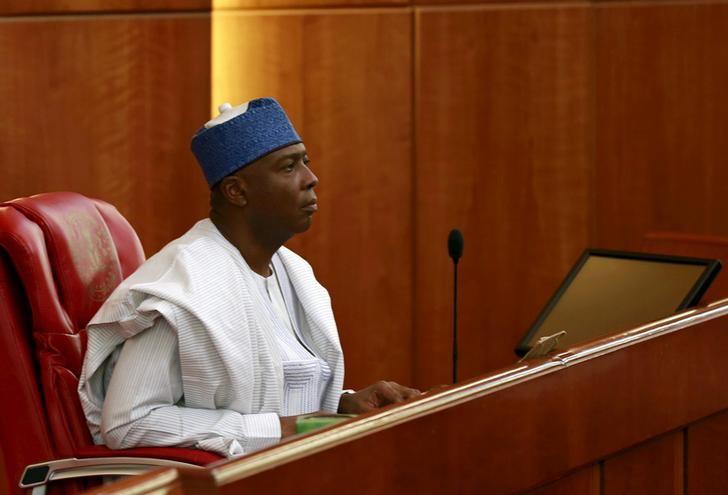
Nigerian court orders retrial of senate president for corruption

A court in Nigeria’s capital Abuja has ordered the retrial of the Senate President Bukola Saraki on three charges related to an alleged false declaration of assets.
A Code of Conduct Tribunal cleared the Senate president of the charges in June, saying the case against him lacked substance.
The government mounted a legal challenge which led to Tuesday’s ruling by the court of appeal that Saraki should be retried by the tribunal on three of the 18 charges against him.
The court of appeal ruled that Saraki did not sufficiently answer three of the charges.
The three counts relate to Saraki’s acquisition of two houses in Ikoyi, an upmarket district in the nation’s commercial capital, Lagos.
“The appeal is dismissed in part in respects of the other 15 counts”, said the judge, Tinuade Akomolafe-Wilson, at the appeal court in the capital Abuja.
The Senate president’s camp has previously denied any wrongdoing and issued a statement in which it said Saraki had been “victorious” due to 15 charges being dropped.
“We believe that upholding the no case submission by Mr. Saraki with regards to 15 of the 18 counts charges vindicates the innocence of the Senate President,” says his media aide, Yusuph Olaniyonu.
The Court of Appeal Verdict Vindicates Me
Read more here: https://t.co/RuDuMex5s6 pic.twitter.com/P0EoxsJGl6
— Dr. Abubakar Bukola Saraki (@bukolasaraki) December 12, 2017
CGTN’s Deji Badmus in Lagos says the judgement of the Court of Appeal is perhaps a clear indication of the seriousness of President Buhari’s administration in its fight against corruption, not minding who is involved.
“Lately, critics have been expressing doubts about the government’s resolve to take on very top politicians. But the fact that the government chose to pursue this case against a Senate President, who is a member of the same party as the President, goes a long way in affirming the President’s resolve to fight corruption, no matter the individuals involved,” Badmus said.
The original charges are related to allegations that Saraki falsely declared his assets when he was a state governor from 2003 to 2011, to which he pleaded not guilty.
Bukola Saraki’s three-year tenure as president of the upper house has been marred by numerous accusations of misconduct and investigations, though none have led to convictions.

Saraki ran unopposed for the post of Senate president, mainly with the backing of the opposition. He was not the ruling party’s preferred candidate, which led to strains in his relationship with President Muhammadu Buhari.
The Senate president has been dogged by legal cases since taking office.






